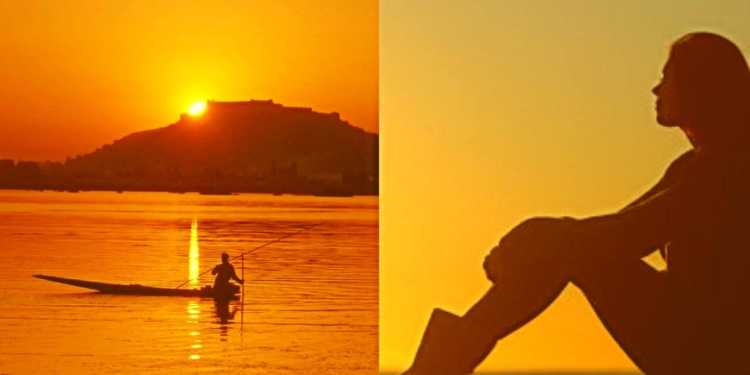As my college exams got over and everybody was packing to go home, my friends were all talking about how excited they were to go back to their home-towns and were chattering merrily in their mother tongues. Looking at the Malayali and Bengali people flocking together in groups, I realised that I could not go back ‘home’. Being the daughter of ‘Kashmiri Migrants’- a euphemistic term used to hide the horrors Kashmiri Pandits faced in the ‘90s- I haven’t visited the land of my ancestors in the last 6 years, fearing for my safety and to avoid looking at the mess radicalisation has made of what once was a beautiful place. The streets which, according to my parents, used to be dotted with houses of our relatives, are now home to abandoned buildings and if I ever go back there, it will only be as a tourist, not a resident.
It is said that you can take a person out of their homeland, but you cannot take the homeland out of the person. However, I feel that in the process of leaving our native place, we have had to leave a portion of our lives behind. The current generation of Kashmiri Pandits, including me, have been denied the privilege of being born and brought up in our natural milieu. That perhaps has made us somewhat indifferent to the future of our Community.
Yeah, we do relish our Rogan Josh and Matsch but when it comes to taking a stand for our community, we don’t show much enthusiasm. Every time a discussion on ethnicity comes up in class, I, along with other Kashmiri Pandits, hesitate to call ourselves ‘Kashmiris’. This happens because we are afraid of being equated with stone-pelters and militants by the less knowledgeable. There are even those who question our exodus, they obviously have no idea of what Kashmiri Pandits suffered. Every time I see people of other communities communicating in their own language, I’m a little ashamed of my lapses in spoken Kashmiri. Lack of practice and the absence of people around me conversing in Kashmiri have deprived me of a command over my mother tongue.
Every ethnic group has a certain characteristic associated with it because of which others identify them as part of that group. Kashmiris don’t just look different, we have our own way of thinking, our own brand of humour and a certain pride in our community that has survived despite the uprooting.
A standard dictionary defines the word ‘community’ as a group of people living in the same place or having a particular characteristic in common. According to the 2011 Census, only 2700-3400 Kashmiri Pandits now live in the valley and they still fear for their lives. The rest are scattered in Jammu and Delhi. Some people may argue that the community sentiment can be generated irrespective of the place of residence.
But I feel that it is only in the land which was once inhabited by one’s forefathers that one can live fearlessly. Every time people ask me why I refuse to go back to such a beautiful place even for a visit, I try to tell them the truth. But then I realise that people have their own opinions and will believe only what they want to. Also, while we have suffered a lot in the past and struggled to start afresh in other states, we can only blame ourselves for the lack of unity and apathy we have towards our culture. The people of a community are responsible for preserving their heritage and passing it on to the later generation. Even if we do not get our own desired settlements in the Valley, the least we can do is to not shun the inner Kashmiri in us and to embrace it instead. Finally, there always comes a time when one has only his/her ethnicity and roots to embrace as a part of oneself.




























